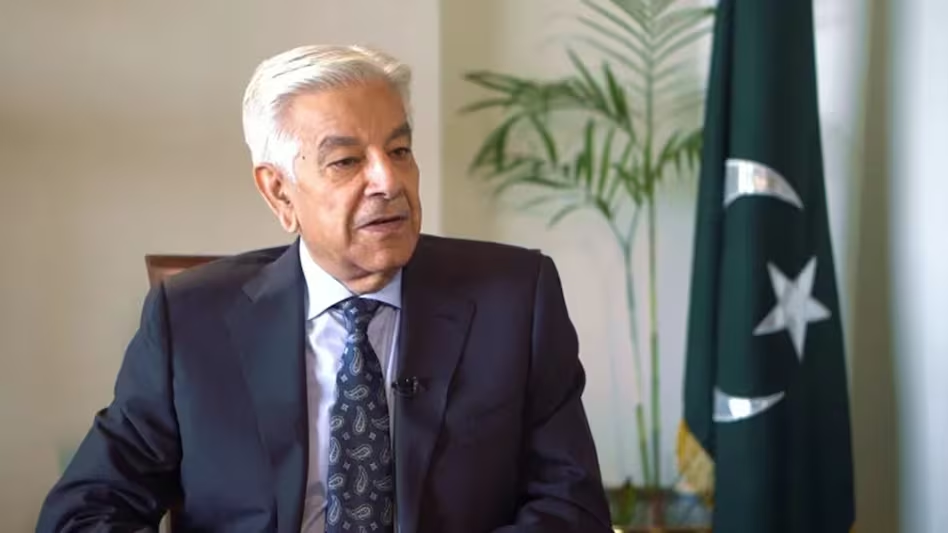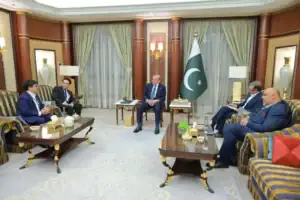Islamabad: Amid rapidly escalating military tensions between India and Pakistan, Defence Minister Khawaja Asif has clarified that no meeting of the National Command Authority (NCA)—the top civil-military body responsible for overseeing Pakistan’s nuclear assets—has taken place or is currently planned.
Speaking to media, Khawaja Asif dispelled media speculation surrounding high-level nuclear discussions, stating, “There has been no meeting of the National Command Authority, nor is any such meeting scheduled.”
Meanwhile, diplomatic channels appeared to signal a cautious willingness to step back from the brink. Pakistan’s Foreign Minister indicated a conditional openness to halting further military action if India reciprocates.
“If India stops here, we will consider stopping here too,” he said during a televised interview, hinting at a potential opening for de-escalation.
On the other side, during a press conference in New Delhi, Indian Air Force Wing Commander Vyomika Singh reiterated that India remains open to de-escalation, but only if Pakistan also exercises restraint.
She was joined by Indian Army Colonel Sophia Qureshi and Foreign Secretary Vikram Misri, who acknowledged that five airbases—Udhampur, Pathankot, Adampur, Bhuj, and Bathinda—had sustained equipment damage and personnel injuries following strikes from across the border.
Back in Pakistan, security sources confirmed the continuation of Operation Bunyan-ul-Marsoos, the country’s retaliatory military campaign launched early Saturday in response to what it has described as ongoing Indian aggression.
Operational Details
As part of this operation, Pakistan is targeting all Indian bases identified as launch points for attacks against Pakistani civilians and religious sites.
According to military sources, multiple strategic locations across India are being engaged simultaneously, including through the deployment of Al-Fatah missiles, which have been named in honor of Pakistani children killed in recent cross-border violence.
“These children are martyrs, and their sacrifice will not be forgotten,” the sources emphasized, citing the symbolic naming of the missile as part of a national tribute.
In earlier briefings, DG ISPR Lieutenant General Ahmed Sharif Chaudhry disclosed that India had fired six ballistic missiles from the Adampur airbase in Indian Punjab.
He noted that one missile had landed near Adampur itself, while the remaining five struck civilian areas in Amritsar.
Lt. Gen. Chaudhry labeled the incident as reckless and dangerous, arguing that India’s operational decisions endangered civilian lives and indicated troubling internal failures.
“This was not an accident,” he asserted. “India is deliberately targeting Sikh-majority areas in Punjab to provoke unrest among the Sikh population and turn them against Pakistan.”
Read More: French Intelligence Confirms Rafale Jet Downed by Pakistan; CNN
In a separate briefing for foreign journalists, Lt. Gen. Chaudhry challenged India to produce verifiable evidence of Pakistan’s alleged drone and missile attacks on Indian military sites. “Pakistan has not used drones or rockets,” he said. “If India claims otherwise, let it present proof.”
He condemned what he called misinformation being spread by Indian media, accusing it of running “fabricated narratives” without evidence.
According to the DG ISPR, Pakistan’s retaliatory actions have been limited in scope and specifically focused on Indian military posts involved in targeting civilians along the Line of Control (LoC).
Lt. Gen. Chaudhry was joined at the briefing by Air Vice Marshal Aurangzeb Ahmed, Director General Public Relations of the Pakistan Air Force (PAF), and Rear Admiral Raja Rab Nawaz, Deputy Chief of Naval Staff (Operations).
Also Read: BBC Confirms Footage of Crashed Indian Rafale Jets
Together, they offered insights into the evolving operational landscape along the LoC and warned of broader regional instability if India continues its military provocations.
They also categorically denied Indian allegations regarding an attack in Pahalgam, cautioning that New Delhi’s aggressive stance could derail regional peace efforts.









